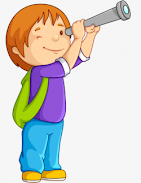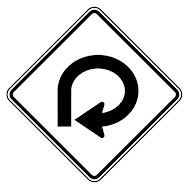Discovery Though the Eyes of a Child
I recently read an article by Phil Plait, titled "This Is Discovery" where he highlights the importance of science - specifically the importance of scientific discovery. For those who already understand the importance of science for science's sake, the videos are at the very least a pleasant reminder of the shared value that many of us have for the pursuit of knowledge. For those who may not be as concerned with the endeavors of the scientific community, it serves as a thorough and humbling treatise on the value that society at large, and in particular those who hold political influence, should have for science.
The article itself was only a few paragraphs, but the main points were made by way of two videos: one by Phil Plait himself, and the other by Dr. Sheila Patek. Both videos are well done, and - very importantly - are done as if making an attempt to shake hands with people who don't quite make the connection between discovery and practical application. I won't attempt to restate either argument here - just watch the videos and they will say it better than I can. My contribution to this topic goes deep into the foundation of our future as a species - from the perspective of children.
I have always loved dry erase boards, and one day I turned one entire wall in my office at home into a giant dry erase board. I use it for myself, but this has also helped to spark conversations with my kids. At any given time, the wall will be filled with scribblings of neural networks, Chinese characters, a to-do list, and a few homework problems that I'm helping my kids with. Even though it is my dry erase wall in my office (and don't you forget it), it is, and always has been, a shared space for my family to use. Not a day goes by where one of my kids does not use the board, or ask me a question about something they are curious about. No matter what I am working on, I will stop and give them my undivided attention to hear what they have to say. We brainstorm ideas on the wall, we discuss, we experiment, we research. These conversations are not limited to the dry erase wall in my office however, and are not limited to any given place or situation. The questions range from foreign language, astronomy, and computers, to food, physics, and music, and many other areas. I don't always have the answers, but I always, always encourage them to ask questions. I don't know what they will be when they grow up, but I do know that they will have grown up with an appetite for knowledge, a healthy sense of skepticism, and an open mind.
For me, this is completely natural; encouraging my kids to ask questions. Consider however that I did not encourage this behavior. What would the future hold for my kids if they ask questions and I simply told them to not ask questions - just follow their textbooks, do what the teacher says, and don't stray off the beaten path. I shudder to think of what would happen to my kids. Sure, they'll be ok, they will have an education, but they won't be educated. Now, what would the effect be on our society if we discouraged curiosity? Imagine generations of kids, who grow into adulthood, who become decision-makers, who set education policy and national priorities, who grew up not in a culture of discovery, but one which only supports the advancement of predictable outcomes? Sadly, there are many polarizing challenges that we face in the United States, and even globally, not necessarily due to a lack of education, but due to the absence of that sense of wonder that we, hopefully, had as children.
When we truly understand the importance of science, we find that it isn't just about collecting data. We learn that it is ok to ask questions, it is ok to be wrong, and it is ok to learn new things - even if we don't know where it will lead. Of course, children know this. Let them show all of us the way forward.




Comments
Post a Comment